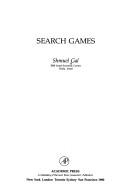| Listing 1 - 10 of 34 | << page >> |
Sort by
|
Digital
ISBN: 9783319071855 Year: 2014 Publisher: Cham Springer International Publishing
Abstract | Keywords | Export | Availability | Bookmark
 Loading...
Loading...Choose an application
- Reference Manager
- EndNote
- RefWorks (Direct export to RefWorks)
This book describes a novel conception of reality, one that uniquely incorporates an idealistic view of existence with an account of objectivity. It introduces a general model of conceptual analysis and demonstrates its effectiveness in exposing and establishing the existence of conceptual ties. The book begins by introducing the tools and principles needed for the conceptual analysis undertaken in chapters that follow. Next, it presents a detailed examination into existence, contingency, idealism, self-consciousness and natural laws. In the process, the author critically examines the conceptions of existence held by Kant, Frege and Russell; argues that the determinations of past, present and future are subjective in the sense that they imply the existence of consciousness in relation to which they are fixed; shows that every possible reality includes sufficient conditions for self-consciousness; and confronts the question of the "uniformity of nature," which states that reality is subject to natural laws. In the end, the idealistic conception of reality developed in this book implies that existence is relative, rather than absolute, in the sense that it is determined in relation to a point of view internal to reality. This view of existence implies that reality necessarily exists.
Philosophy --- Metaphysics --- Philosophy of language --- Linguistics --- filosofie --- linguïstiek --- taalfilosofie --- metafysica

ISBN: 9780122738500 0122738500 9780080956572 0080956572 Year: 1980 Publisher: New York Academic Press
Abstract | Keywords | Export | Availability | Bookmark
 Loading...
Loading...Choose an application
- Reference Manager
- EndNote
- RefWorks (Direct export to RefWorks)
Multi
ISBN: 9783030805838 9783030805821 9783030805845 9783030805852 Year: 2022 Publisher: Cham Springer International Publishing
Abstract | Keywords | Export | Availability | Bookmark
 Loading...
Loading...Choose an application
- Reference Manager
- EndNote
- RefWorks (Direct export to RefWorks)
This book offers a solution to the ancient philosophical problem regarding the nature and the justification of morality. The importance of this subject matter is obvious, not merely as an abstract philosophical problem, but perhaps even more as a practical challenge, regarding the way we ought to live our lives: the values that ought to direct us, and the ends that we ought to pursue. In the course of this inquiry, a wide array of philosophical topics is explored: the nature of intentional action, and the role played by reason and desires in agency; the question of the final end of agency - better known in ancient terminology as the question of the purpose of life, and in modern terms as the question of the meaning of life; the nature of moral obligations and their rational justification; the challenge posed by determinism for the freedom of the will, with its implications on fatalism and moral responsibility; and normative questions regarding the value of life. This book is of interest not only to professional philosophers, but also to any intellectual who is concerned with questions about morality, our nature as agents, and the end that we ought to pursue.
General ethics --- History --- ethiek --- geschiedenis
Multi
ISBN: 9781447364788 9781447364757 9781447364764 9781447364771 Year: 2024 Publisher: Bristol Policy Press, an imprint of Bristol University Press
Abstract | Keywords | Export | Availability | Bookmark
 Loading...
Loading...Choose an application
- Reference Manager
- EndNote
- RefWorks (Direct export to RefWorks)

ISBN: 9781580461382 9781580466745 Year: 2017 Publisher: Rochester, N.Y. University of Rochester Press
Abstract | Keywords | Export | Availability | Bookmark
 Loading...
Loading...Choose an application
- Reference Manager
- EndNote
- RefWorks (Direct export to RefWorks)
Jewish religion --- History of Asia --- anno 1920-1929 --- anno 1930-1939 --- anno 1940-1949 --- Israel --- Palestine
Digital
ISBN: 9780817644017 Year: 2005 Publisher: Boston, MA Birkhäuser Boston, Inc
Abstract | Keywords | Export | Availability | Bookmark
 Loading...
Loading...Choose an application
- Reference Manager
- EndNote
- RefWorks (Direct export to RefWorks)
Operator theory --- Functional analysis --- Mathematical analysis --- Numerical analysis --- Engineering sciences. Technology --- Computer science --- analyse (wiskunde) --- functies (wiskunde) --- informatica --- ingenieurswetenschappen --- numerieke analyse
Digital
ISBN: 9789048136858 9789048136865 9789048136995 9789400732018 Year: 2010 Publisher: Dordrecht Springer
Abstract | Keywords | Export | Availability | Bookmark
 Loading...
Loading...Choose an application
- Reference Manager
- EndNote
- RefWorks (Direct export to RefWorks)
It was in 1660s England, according to the received view, in the Royal Society of London, that science acquired the form of empirical enquiry we recognize as our own: an open, collaborative experimental practice, mediated by specially-designed instruments, supported by civil discourse, stressing accuracy and replicability. Guided by the philosophy of Francis Bacon, by Protestant ideas of thisworldly benevolence, by gentlemanly codes of decorum and by a dominant interest in mechanics and the mechanical structure of the universe, the members of the Royal Society created a novel experimental practice that superseded former modes of empirical inquiry, from Aristotelian observations to alchemical experimentation. This volume focuses on the development of empiricism as an interest in the body – as both the object of research and the subject of experience. Re-embodying empiricism shifts the focus of interest to the ‘life sciences’; medicine, physiology, natural history. In fact, many of the active members of the Royal Society were physicians, and a significant number of those, disciples of William Harvey and through him, inheritors of the empirical anatomy practices developed in Padua during the 16th century. Indeed, the primary research interests of the early Royal Society were concentrated on the body, human and animal, and its functions much more than on mechanics. Similarly, the Académie des Sciences directly contradicted its self-imposed mandate to investigate Nature in mechanistic fashion, devoting a significant portion of its Mémoires to questions concerning life, reproduction and monsters, consulting empirical botanists, apothecaries and chemists, and keeping closer to experience than to the Cartesian standards of well-founded knowledge. These highlighted empirical studies of the body, were central in a workshop in the beginning of 2009 organized by the unit for History and Philosophy of Science in Sydney. The papers that were presented by some of the leading figures in this area are presented in this volume.
Digital
ISBN: 9789400727748 Year: 2012 Publisher: Dordrecht Springer Netherlands
Abstract | Keywords | Export | Availability | Bookmark
 Loading...
Loading...Choose an application
- Reference Manager
- EndNote
- RefWorks (Direct export to RefWorks)
Chemical structure --- Human biochemistry --- Physiology of nerves and sense organs --- Neuropathology --- Pathology --- moleculaire structuur --- medische biochemie --- neurologie --- protein-engineering --- pathologie --- biochemie --- eiwitten --- neurobiologie --- moleculaire biologie
Digital
ISBN: 9781461470984 Year: 2013 Publisher: New York, NY Springer
Abstract | Keywords | Export | Availability | Bookmark
 Loading...
Loading...Choose an application
- Reference Manager
- EndNote
- RefWorks (Direct export to RefWorks)
This monograph deals with the quantitative overconvergence phenomenon in complex approximation by various operators. The book is divided into three chapters. First, the results for the Schurer-Faber operator, Beta operators of first kind, Bernstein-Durrmeyer-type operators and Lorentz operator are presented. The main focus is on results for several q-Bernstein kind of operators with q > 1, when the geometric order of approximation 1/q
Mathematics --- Algebraic geometry --- Analytical spaces --- Functional analysis --- Differential equations --- Mathematical analysis --- Computer science --- differentiaalvergelijkingen --- analyse (wiskunde) --- complexe veranderlijken --- functies (wiskunde) --- informatica --- wiskunde
Digital
ISBN: 9789400773837 Year: 2014 Publisher: Dordrecht Springer Netherlands
Abstract | Keywords | Export | Availability | Bookmark
 Loading...
Loading...Choose an application
- Reference Manager
- EndNote
- RefWorks (Direct export to RefWorks)
This volume comprises studies of the early modern drama of motion and transformation of knowledge. It is unique in taking its global nature as fundamental and contains studies of the theme of motion and knowledge in China, Europe and the Pacific from the 16th to the 18th century. People living around the turn of the 17th century were experiencing motion in ways beyond the grasp of anyone less than a century earlier. Goods and people were crossing lands and oceans to distances never envisioned and in scales hardly imaginable by their recent predecessors. The earth itself has been set in motion and the heavens were populated by a whole new array of moving objects: comets, moons, sun spots. Even the motion of terrestrial objects—so close at hand and seemingly obvious—was being thoroughly reshaped. In the two centuries to follow, this incessant, world-changing motion would transform the creation, interpretation and dissemination of knowledge and the life and experiences of the people producing it: savants, artisans, pilots, collectors. .
Human sciences (algemeen) --- Multidisciplinary collective works --- Ethnology. Cultural anthropology --- Art --- Economic geography --- History --- interdisciplinair onderzoek --- geschiedenis --- kunst --- culturele antropologie --- cultuurwetenschap --- geografie
| Listing 1 - 10 of 34 | << page >> |
Sort by
|

 Search
Search Feedback
Feedback About UniCat
About UniCat  Help
Help News
News